Background checks, cooling-off periods for gun buyers and other ‘basic steps’ to restrict firearms by states CAN lower deaths, study shows as voters seek tighter rules
State laws that require background checks or cooling-off periods before purchasing firearms are effective in reducing gun deaths, Princeton University researchers revealed in a study this week.
Scientists Patrick Sharkey and Megan Kang found that stricter gun laws passed by 40 states between 1991 and 2016 reduced gun deaths by nearly 4,300 in 2016.
That’s roughly 11 percent of all gun deaths that year, the most recent period for which data is available.
The study comes as residents of Lewiston, Maine, come to terms with America’s latest mass shooting — a rampage at a bowling alley and bar that left 18 people dead and others injured.
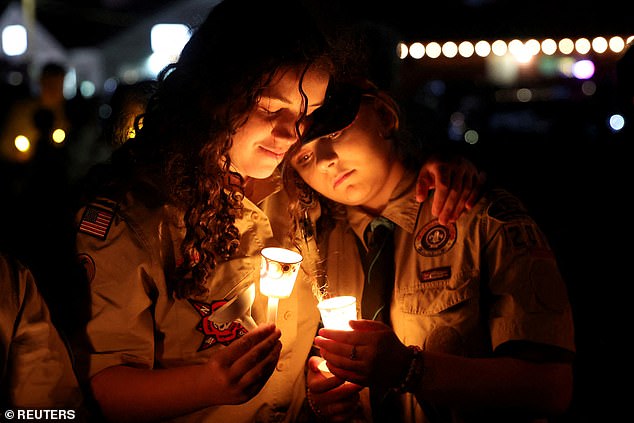
Mourners hold candles during a vigil for the victims of the Lewiston mass shooting as officials answer questions about the missed opportunities they had to stop a killer

Robert Card, 40, committed mass murder on October 25 at a bowling alley in Lewiston, Maine
It also comes as Gallup Polls show that a majority of Americans – 56 percent – support stricter gun laws.

Gun restrictions work, says Patrick Sharkey
Yet millions of voters say gun restrictions are overly strict and property rights are enshrined in the Constitution.
“The challenge of gun violence is not insurmountable,” said Sharkey, a sociologist and criminologist The New York Times.
“If states take fundamental steps to regulate guns, thousands and thousands of lives will be saved.”
Laws imposed in dozens of states beginning in the 1990s have succeeded in reducing gun homicides and suicides, he said.
These include background checks, licensing requirements, waiting periods for purchasing guns, raising the minimum age, banning military-style weapons, limiting firearms in public places and cracking down on gun trafficking.
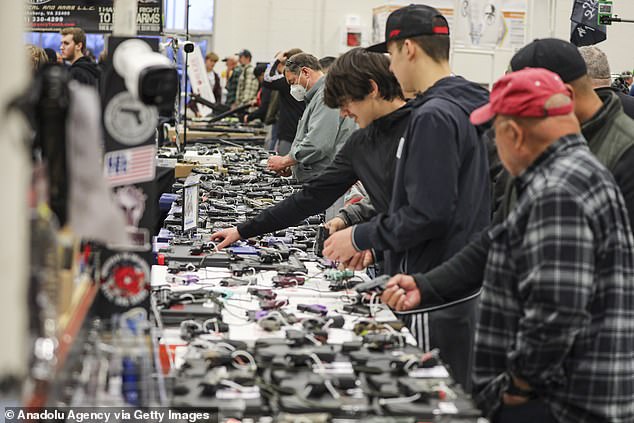
Shop ’til you drop: a gun expo at the Dulles Expo Center in Chantilly, Virginia
Each time a state passed a new gun line, the number of gun deaths per 100,000 residents fell by 0.21, researchers found.
“There is no policy that will eliminate the flow or circulation of guns within and between states,” Sharkey said.
“But the idea is that these types of regulations are piling up.”
While some anti-gun activists are calling for federal action — such as nationwide background check laws or banning assault weapons — the research shows that even small changes at the state level are making a difference.
The division between Democrats and Republicans in Congress makes further changes to federal law unlikely.
Gun advocacy groups, including the National Rifle Association, a major lobbying organization, and many Republican lawmakers remain strongly opposed to sweeping gun control legislation.
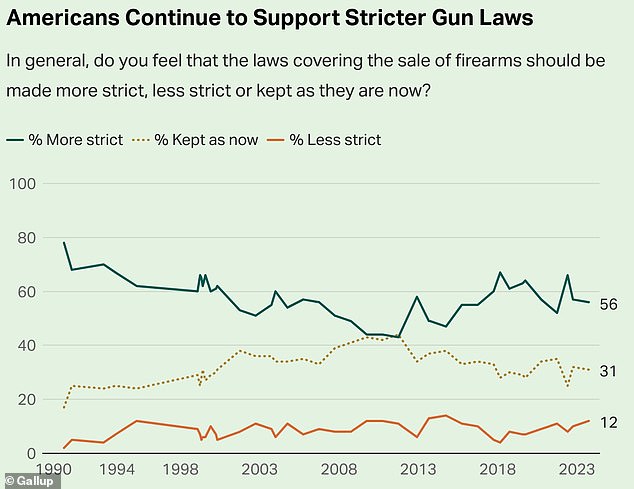
Americans still want stricter restrictions on guns, Gallup polls show
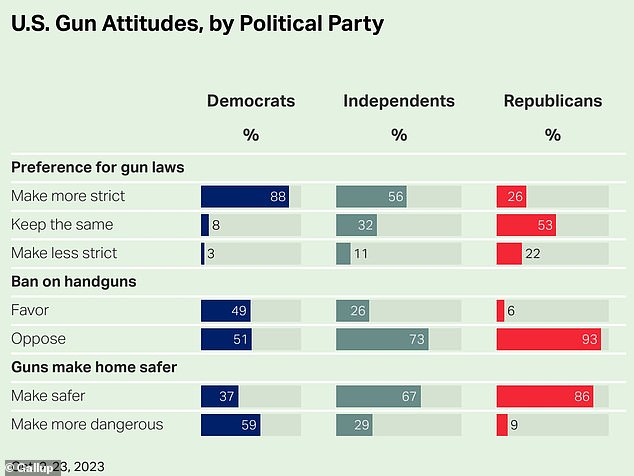
The push for stricter gun laws is one of the big differences between Republicans and Democrats
Congress passed a limited gun control bill last year, expanding background checks, funding anti-violence programs and boosting mental health funding.
But since 2016, many states have relaxed their gun laws. Sometimes they were forced to do so by the Supreme Court.
Americans also started buying guns during the pandemic, with about a fifth of households buying guns between March 2020 and March 2022.
Gallup pollsters said Tuesday that Americans remain in favor of stricter gun laws by wide margins.
Fifty-six percent of adults say gun laws should be stricter, while 31 percent say they should be kept as they are and 12 percent support less strict gun laws.
The survey of more than a thousand adults was conducted after the mass shooting in Lewiston.
The results are largely unchanged from last year’s survey.
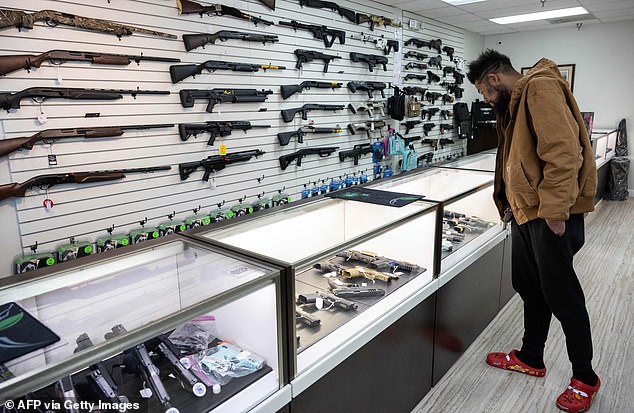
Restricting gun sales at stores like this one in Capitol Heights, Maryland, could help reduce deaths, study finds
Support for stricter gun laws has fallen slightly since June 2002, after the school shooting in Uvalde, Texas.
Polls also showed that Americans believe guns make homes safer rather than more dangerous.
The number of households with at least one firearm has remained stable, at about 44 percent, researchers found.
According to Gallup, voters want Congress to go further than the law passed after the Uvalde shooting.
“Americans apparently felt these steps did not go far enough to prevent gun violence,” the pollsters said in a report.
“That could reflect that Americans favor a number of proposals that have been offered as antidotes to gun violence — including longer waiting periods for gun purchases and a ban on assault weapons — that were not included in the legislation.
